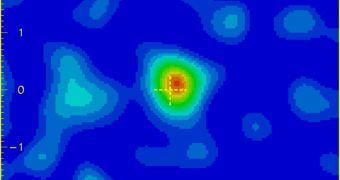Proponents of a controversial theory linking cosmic ray activity to global warming were dealt a severe blow in a new scientific paper published in the latest issue of the journal Environmental Research Letters. The study revealed no link, causal or otherwise, between the two phenomena.
Some of the climate scientists that resist the idea suggesting that global warming is caused by human greenhouse gas emissions developed the theory, which suggests that solar variations are responsible for the variable amount of cosmic rays that reach our planet. They suggest that these variations may be causing global warming, and not human pollution.
The new study analyzed 50 years of climate data, and uncovered only negligible correlations between cosmic rays and Earth's changing climate. The work was led by Norwegian Meteorological Institute (NMI) expert Rasmus Benestad, Physics World reports.
He says that the cosmic ray theory, which holds that the radiations impact cloud formation patterns, and therefore bear a significant influence on the climate, has no scientific merit, and is not based on concrete evidence. Changes in the Sun, he adds, do not cause global warming on Earth.
In order to reach this conclusion, Benestad correlated annual mean cosmic ray flux data collected between 1951 and 2006 to changes that occurred in temperature, precipitations, and mean barometric pressure at sea level over the same interval. The comparison showed no meaningful link.
The investigator accounted for phenomena that may have hampered his results, such as the El Niño Southern Oscillation or the concentration of greenhouses gases in the atmosphere. These gases include carbon dioxide, methane, nitrous oxide, and so on.
“I found little evidence of the cosmic rays having a discernible affect on a range of common meteorological elements: temperature, the barometric pressure or precipitation,” Benestad says.
“Not for the global mean at least. One possible exception may have been for parts of Europe, however,” the expert goes on to say. He explains that the galactic cosmic-ray flux did produce some lower temperatures in some parts of Eastern Europe, but adds that the phenomenon was very restricted.
“The novel aspect [of this research] was the strategy used for analzsing the results – combining linear algebra with regression analysis. This approach made it possible to investigate a large number of measurements simultaneously,” Benestad concludes.

 14 DAY TRIAL //
14 DAY TRIAL //